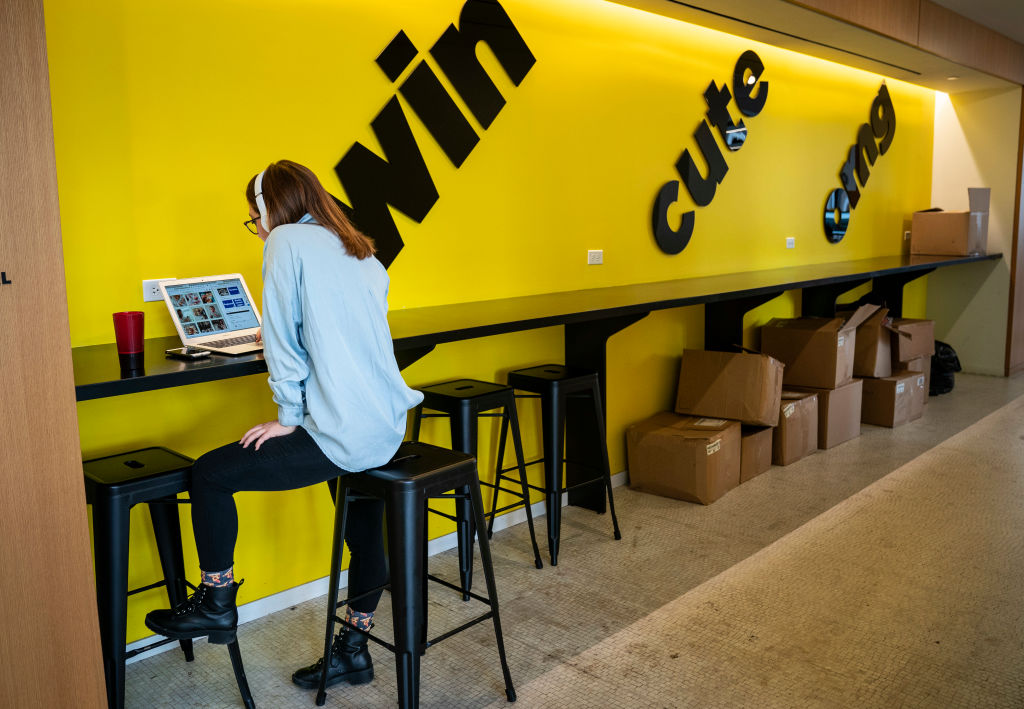As a young digital journalist in the late 2000s, my industry peers and I often reminisced about the era we felt we’d just missed: the glamorous, fin-de-siècle age of New York media, the time of seven-figure budgets for magazine launches and outsize editorial personalities that commanded celebrity attention in New York. We were the ones scrambling to keep our jobs afloat in the aftermath of the 2008 recession.
As it turns out, we still had it pretty good.
The other evening, right after the brutal layoffs at digital publications such as BuzzFeed and HuffPost were announced, I found myself in a dive bar (of course) with a handful of the aforementioned elder millennials of digital media. ‘There should be 10 digital publishers, and now there’s 70, and we’re all fighting for the scraps,’ said one of them, a senior business development executive at a digital publisher. And none of us could say we didn’t see this coming. Given the overstaffing, gargantuan venture funding rounds, and heavily opinion-driven coverage that often didn’t bring anything new to the media landscape, it was clear that there would be a reckoning with these ‘new media’ publications.
No one had sounded the alarms. Or did they?
I now work in advertising. I left journalism for the ‘dark side’ in 2011, driven in part by concerns about the long-term stability and earning potential of my job, but also because I was starting to pick up on something new that I didn’t like. There were too many of us doing the same job. When I started reporting in 2006 on fresh new companies like Facebook and Twitter, it was a novelty beat that sometimes came across to my senior colleagues as a gimmick. Five years later, there were so many reporters covering Mark Zuckerberg’s every move that we scrambled to make our individual interpretations as original as possible to the point of hyperbole. Or we groveled for ‘exclusive’ stories that frankly had no business being in the spotlight. We got hooked on the cocaine of the media industry: clickbait.
It’s only gotten worse, and it doesn’t just plague those of us writing about technology. Yet the warning signs had been out there. There have been people talking about this long-term, and they haven’t been afraid to be loud. The short version: media companies have gotten too addicted to competing with one another rather than finding what they’re best at, and they’re willing to prop themselves up on extremely shoddy business models in order to do so.
One prescient voice has been Rafat Ali, in a previous career the head of PaidContent and now the founder of travel business media brand Skift. In a memorable ‘tweetstorm’ in 2017, Ali posted one tweet after another about the ‘contract of irrelevance’ that digital publishers had undertaken, one by one, by attempting to expand their coverage beyond their original scope to the point that the brands that had made them famous and brought them a loyal audience were completely diluted. This is what caused most of the oversaturation that led to the cuts we’re seeing today. ‘Time to focus on what matters: building loyalties, both with users and advertisers (if that’s a constituency), focus on doing the things that build revenue base, stay away from hiring diva-stars for the sake of hiring them, and focus on quality as consumers are tiring off cheap tricks,’ Ali said. That was way back in 2016.
Meanwhile, Fox Networks Group advertising chief Joe Marchese has also been decrying bad practices in the media industry for years, whether it’s in raising the awareness (five years ago!) of how much bogus traffic and ad fraud threaten the industry or the extent to which digital platforms exaggerated their actual reach. (Disclosure: I work for the company Marchese founded, having been drawn to the role in the first place because of his insights about just how badly the media industry was screwing up.) Investing millions into social media video was a distraction at best: The audiences were questionable, the ad revenue was even more questionable, and publications were left at the whim of platforms that didn’t always have their best interests in mind.
Combine these unsustainable business practices and an obsession with getting the latest ‘woke’ millennial opinion pieces – the ultimate clickbait! – and you have doomed industry.
What’s saddest is that many of the reporters who’ve seen their jobs cut have been seasoned writers covering important subjects. Many are talented journalists and I hope they land somewhere that values and appreciates their work. It seems very unfair that they’re casualties of the fact their employers have just realized that they can’t be everything to everyone. But if there’s a lesson to be learned from this, it’s that those of us on the business side shouldn’t hesitate to tell our editorial colleagues about what we do and how we operate. This was taboo for decades, but in an era of digital disruption, it no longer stands. As a young journalist interviewing for jobs, I wouldn’t have known that I ought to consider massive rounds of venture backing, an enormous hiring spree in the name of ‘expansion,’ or a heavy reliance on viral and social traffic to be red flags. I know now.
It seems evident in hindsight that when it came to this new breed of publishers, the highs were going to be high and the lows were going to be very, very low. Being ‘digitally native,’ it turned out, didn’t mean these companies were immune from the same fates that befell their analog predecessors.

























